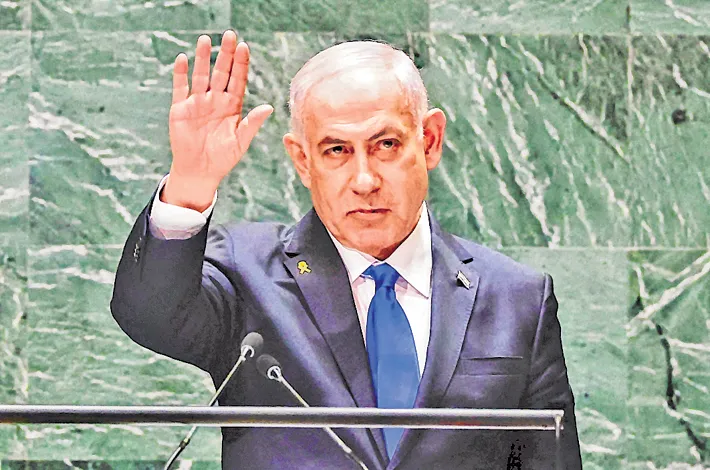Bibi eyes Iran after dismantling its allies
21-12-2024 01:42:46 AM

After the fall of Syrian president Bashar al-Assad, Israeli Prime Minister Benjamin Netanyahu is set to cement his strategic goals: tightening his military control over Gaza, thwarting Iran's nuclear ambitions and capitalising on the dismantling of Tehran's allies -- Palestinian Hamas, and Lebanon's Hezbollah.
Without Syria, the alliances Tehran has nurtured for decades have unraveled. As Iran's influence weakens, Israel is emerging as the dominant power in the region.
Netanyahu is poised to zero in on Iran's nuclear ambitions and missile programme, applying an unyielding focus to dismantling and neutralising these strategic threats to Israel, according to sources Reuters spoke to.
Iran, Middle East observers say, faces a stark choice: Either continue its nuclear enrichment programme or scale back its atomic activities and agree to negotiations.
"Iran is very vulnerable to an Israeli attack, particularly against its nuclear programme," said Joost R. Hiltermann, Middle East and North Africa Programme Director of the International Crisis Group. "I wouldn't be surprised if Israel did it, but that doesn't get rid of Iran."
"If they (Iranians) do not back down, Trump and Netanyahu might strike, as nothing now prevents them," said Palestinian analyst Ghassan al-Khatib, referring to President-elect Donald Trump. Khatib argued that the Iranian leadership, having demonstrated pragmatism in the past, may be willing to compromise to avert a military confrontation.
Trump, who withdrew from a 2015 agreement between Iran and six world powers aimed at curbing Tehran's nuclear goals, is likely to step up sanctions on Iran's oil industry, despite calls to return to negotiations from critics who see diplomacy as a more effective long-term policy.
With 2024 coming to an end, the Israeli Prime Minister will likely agree to sign a ceasefire accord with Hamas to halt the 14-month-old Gaza war and free Israeli hostages held in the enclave, according to sources close to the negotiations.
But Gaza would stay under Israeli military control in the absence of a post-war US plan for Israel to cede power to the Palestinian Authority (PA), which Netanyahu rejects. Arab states have shown little inclination to press Israel to compromise or push the decaying PA to overhaul its leadership to take over.
"Israel will remain in Gaza militarily in the foreseeable future because any withdrawal carries the risk of Hamas reorganising. Israel believes that the only way to maintain the military gains is to stay in Gaza," Khatib told Reuters.
For Netanyahu, such a result would mark a strategic victory, consolidating a status quo that aligns with his vision: Preventing Palestinian statehood while ensuring Israel's long-term control over Gaza, the West Bank and East Jerusalem -- territories internationally recognised as integral to a future Palestinian state.








